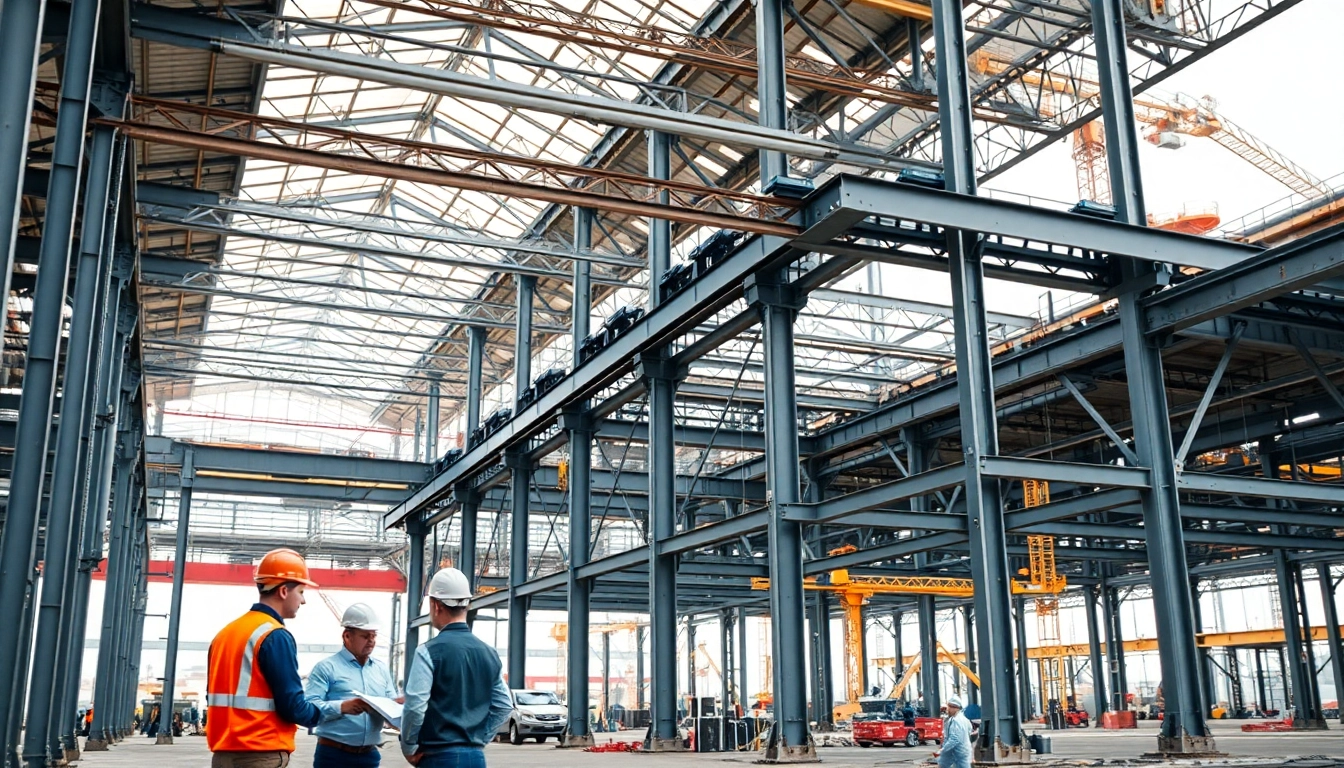The Essential Role of a New Jersey Construction Manager
In the dynamic field of construction, the role of a New Jersey Construction Manager is paramount. Tasked with the pivotal responsibility of overseeing construction projects from inception to completion, these professionals ensure that every phase aligns with the project’s goals, budgets, and timelines. This article aims to unravel the complexities of what a construction manager does, the skills required, and the evolving nature of the construction industry.
Understanding Daily Responsibilities
A typical day for a construction manager in New Jersey involves a plethora of tasks, all aimed at ensuring the successful completion of construction projects. Some of the key responsibilities include:
- Project Planning: Developing comprehensive project plans that outline every phase of construction. This includes budgeting, scheduling, and resource allocation.
- Coordinating with Stakeholders: Liaising with clients, architects, engineers, and subcontractors to ensure all parties are aligned on project specifications and timelines.
- On-Site Management: Overseeing daily operations on the construction site, ensuring that work is completed to schedule and quality standards.
- Problem-Solving: Addressing any issues or setbacks that may arise during construction, such as delays caused by weather or supply chain disruptions.
- Compliance Checks: Ensuring all construction activities adhere to the relevant safety standards and building regulations.
- Reporting and Documentation: Keeping detailed records of project progress, expenses, and communications for accountability and transparency.
Key Skills and Qualifications Required
The role of a New Jersey Construction Manager demands a unique blend of technical skills, analytical abilities, and people management. Some essential skills include:
- Leadership: Guiding and motivating a team of workers and subcontractors, often consisting of diverse roles, is essential.
- Communication: Effective verbal and written communication is vital for relaying information and updates to all project stakeholders.
- Technical Proficiency: A strong understanding of construction methods, materials, and regulations is necessary to make informed decisions.
- Time Management: Being able to prioritize tasks and manage time effectively ensures projects remain on schedule.
- Financial Acumen: Understanding budgeting and financial forecasting is crucial for minimizing costs and maximizing profits.
The Importance of Effective Communication
Effective communication is the cornerstone of successful project management in the construction industry. The construction manager acts as a central communication hub, facilitating dialogue between various stakeholders. Strong communication skills help to:
- Resolve conflicts quickly, minimizing downtime and disruptions.
- Clarify project objectives, eliminating potential misunderstandings.
- Provide updates regarding project progress and any changes to schedule or budget.
Key Projects Handled by a New Jersey Construction Manager
Commercial vs. Residential Construction Projects
New Jersey is home to a diverse range of construction projects, from commercial buildings to residential complexes. The approach varies significantly between commercial and residential projects:
- Commercial Construction: This includes large-scale projects such as office buildings, retail spaces, and industrial parks. These projects often require intricate planning and coordination due to their complexity, regulatory requirements, and the need for specialized labor.
- Residential Construction: This encompasses single-family homes, apartments, and townhouses. Residential projects often have stricter timelines and budgets, requiring the construction manager to be adept at meeting client expectations while navigating local zoning laws.
Scope of Work in Infrastructure Development
Infrastructure projects in New Jersey, such as roads, bridges, and public transit systems, also fall under the purview of a construction manager. These projects require advanced project management skills and extensive knowledge of public regulations and safety standards. Key responsibilities in infrastructure development include:
- Planning and Budgeting: Developing plans that consider public safety, environmental impact, and community feedback.
- Stakeholder Engagement: Working closely with government agencies and local authorities to ensure compliance and support for projects.
- Risk Management: Assessing potential risks and implementing measures to mitigate them throughout the project lifecycle.
Innovations in Construction Management
The construction industry is increasingly embracing technological innovations to enhance efficiency and productivity. Construction managers in New Jersey are leveraging tools such as:
- Building Information Modeling (BIM): This technology enables teams to create comprehensive digital representations of physical structures, improving collaboration and reducing errors.
- Project Management Software: Various software solutions assist construction managers in tracking progress, budgeting, and managing resources in real time.
- Drone Technology: Drones are used for site surveying and monitoring progress, allowing for a quicker analysis of onsite conditions.
- Green Building Practices: Incorporating sustainable methods and materials not only meets regulatory demands but also appeals to eco-conscious clients.
Education and Certification for New Jersey Construction Managers
Top Degrees for Construction Management Careers
To become a successful New Jersey Construction Manager, obtaining the right education is critical. Here are some of the most relevant degrees:
- Bachelor’s Degree in Construction Management: This program covers essential topics such as project planning, construction methods, and cost estimation.
- Bachelor’s Degree in Civil Engineering: This degree provides a strong technical foundation necessary for understanding structural integrity and material properties.
- Bachelor’s Degree in Architecture: An architectural background helps construction managers understand the design aspects of projects, promoting collaboration with architects.
Essential Certifications for Professional Growth
In addition to a degree, certifications play a vital role in professional development. Some notable certifications include:
- Project Management Professional (PMP): This certification is recognized globally and demonstrates an individual’s ability to manage projects efficiently.
- Certified Construction Manager (CCM): Offered by the Construction Management Association of America, this certification signifies excellence in construction project management.
- LEED Accredited Professional: This credential focuses on sustainable building practices and demonstrates a commitment to green construction.
Continuing Education and Training Opportunities
Continuous learning is critical in the ever-evolving construction landscape. Construction managers can engage in:
- Workshops and Seminars: Attending industry workshops allows professionals to stay updated on the latest trends and technologies.
- Online Courses: Numerous online learning platforms offer courses on construction management, safety regulations, and new technologies.
- Networking Events: Participating in industry conferences helps build connections and gain insights from experienced professionals.
Challenges Faced by New Jersey Construction Managers
Dealing with Budget Constraints
Construction managers frequently face the challenge of adhering to budgets while trying to meet client expectations. Strategies to mitigate budget issues include:
- Thorough Planning: Taking the time to create detailed plans and accurate estimates can prevent budget overruns.
- Regular Monitoring: Keeping a close eye on expenditures throughout the project allows for timely adjustments and cost controls.
- Supplier Negotiations: Establishing strong relationships with suppliers can lead to better pricing and flexibility in material procurement.
Managing Time Effectively on Projects
Time management is critical in construction, where delays can lead to increased costs and lost opportunities. To manage time effectively, construction managers can:
- Implement Scheduling Tools: Utilizing project management software to develop and maintain timelines can enhance accountability and track progress.
- Prioritize Tasks: Focusing on critical path tasks and adjusting schedules proactively can help keep projects on track.
- Contingency Planning: Anticipating potential delays and preparing backup plans can minimize disruptions to the project timeline.
Addressing Safety Regulations and Compliance
Safety is a top priority in any construction project. New Jersey construction managers must ensure compliance with regulations to protect workers and minimize liability. Practices to enhance safety include:
- Regular Training: Conducting frequent safety training sessions to ensure all workers are aware of safety protocols.
- Site Inspections: Regularly inspecting the site for hazards and ensuring all equipment is in safe working condition.
- Documentation: Keeping meticulous records of safety practices and incidents to maintain accountability and compliance with regulations.
Future Trends in Construction Management in New Jersey
The Impact of Technology on Construction Processes
The integration of technology into construction management continues to grow, reshaping processes and improving efficiencies. Notable trends include:
- Virtual Reality (VR): VR technology allows for immersive project visualization, improving design comprehension and aiding in client decision-making.
- Artificial Intelligence (AI): AI can be leveraged for predictive analytics, enhancing project planning and risk management.
- Prefabrication: The use of prefabricated components can reduce on-site labor and construction time, speeding up project delivery.
Sustainability in Construction Practices
As awareness of environmental issues grows, sustainability is becoming increasingly important in construction. Future trends will likely focus on
- Green Building: Construction managers will be expected to integrate sustainable materials and energy-efficient practices into projects.
- Waste Reduction: Finding innovative ways to minimize waste through recycling and efficient resource management will be prioritized.
- Renewable Energy Integration: Incorporating renewable energy sources in building designs will become a norm, shaping the future of construction in New Jersey.
Adapting to Economic Changes in the Industry
The economic landscape significantly influences the construction industry. Construction managers must remain agile and responsive to market changes by:
- Market Analysis: Conducting regular analyses of economic indicators to forecast trends and adjust business strategies accordingly.
- Financial Flexibility: Maintaining flexible budgets to accommodate unexpected economic shifts without compromising project quality.
- Resilience Planning: Developing contingency plans that allow for rapid adjustments to project scopes or timelines in response to economic fluctuations.













Leave a Reply